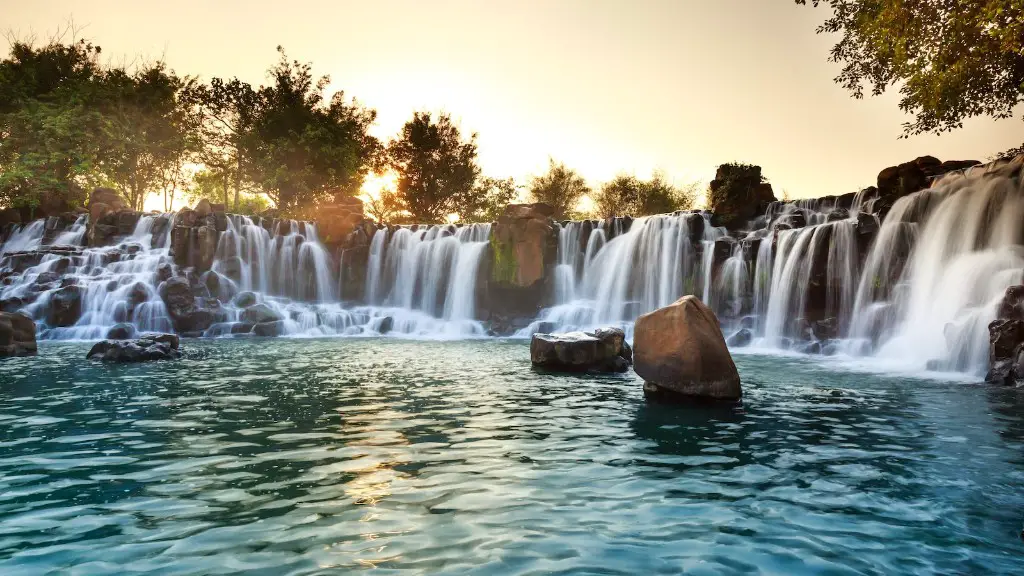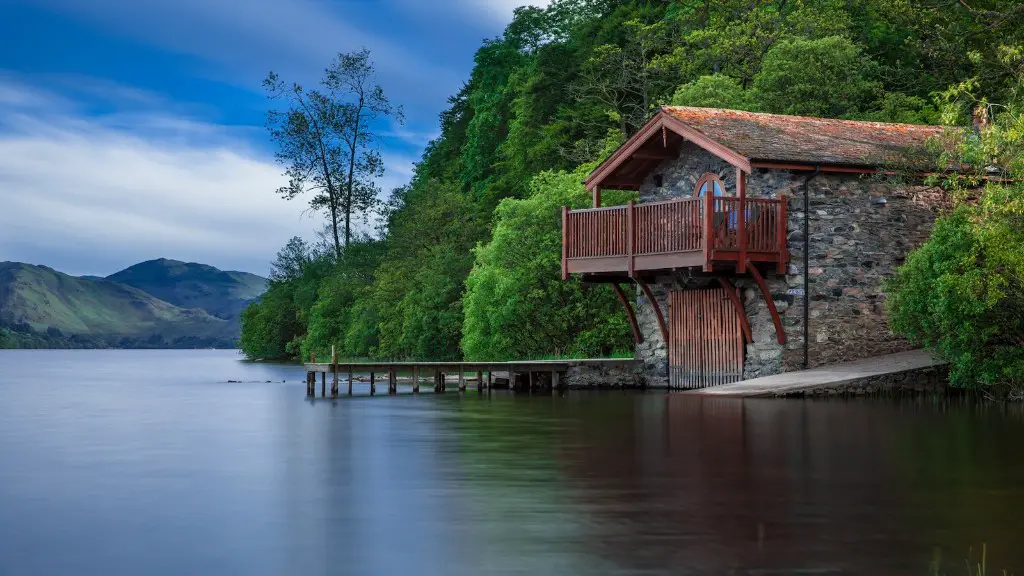The Mississippi River, one of the most important rivers in the United States, is the second longest river in the United States and plays an integral role in the lives of many people who live along its banks. The river flows southward and forms part of the border between eight states, including Arkansas, Mississippi, Louisiana, Minnesota, and Wisconsin. The river plays an important role in providing transportation,food,energy,and recreation for many of the people who live along its banks. In addition, it serves as an habitat for migratory birds and fish, as well as a vital source of fresh water for humans and wildlife.
The Mississippi River has been a significant part of the lives of Native Americans for centuries,and continues to be today. Native Americans have used the river for hunting, fishing, travelling, and trade. The river has also served as the link between different tribes and communities,enabling them to share knowledge, goods, and culture. Today, the river is a key source of income for local businesses and communities that rely on it for water, tourism, and shipping.
The Mississippi River is also home to a wide variety of wildlife, including birds, mammals,residents, and endangered species. Many of these species rely on the river for their food and habitat, while others use it as a means of migration. Furthermore, the Mississippi River is home to a number of species of fish, such as carp, catfish, bass, and sturgeon, which are harvested for food and sport.
In addition to providing livelihoods and sustenance, the Mississippi River has also had a significant cultural impact on the people who live along its banks. Its role in the development of jazz, blues, and gospel music is well-known, and the river has played an important role in the literature and art of the region.
The Mississippi River has also been an essential part of the nation’s economy, serving as an important trade route, as well as a source of power and transportation. Since the early 19th century, the Mississippi River has been a major artery for the transportation of commodities, passengers, and freight. Today, the river continues to be used for trade and transportation, as well as for leisure activities such as boating, fishing, and camping.
The Mississippi River has been recognized as a water source of immense importance, both to the environment, and to the many people who depend on it. It is a vital source of drinking water, as well as a vital source of irrigation water and energy. The hearty river has a rich history of environmental stewardship, and is a major component of the economies of the states it runs through.
History of the Mississippi River
The Mississippi River has been home to humans for millennia, and its importance to American history is undeniable. The river was a major artery for Native Americans and early settlers alike, and played an essential role in the expansion of the United States. The advent of steam-powered ships on the river saw it become an integral component of the nation’s economy, earning the nickname of “Old Man River” by those who worked and lived along its banks. In the 19th and 20th centuries, the Mississippi was a critical artery for transportation for both goods and people,and its importance to the growth of the nation cannot be overemphasized.
Economic Implications
The economic implications of the Mississippi River are clear and far-reaching. Not only is the river a major component of the nation’s agricultural economy, but it also provides jobs to thousands of people who make their living on the river. The Mississippi is estimated to contribute approximately 10 billion dollars to the national economy annually, in addition to countless intangible benefits.
Environmental Impact
In addition to its economic importance, the Mississippi River is also a key component of the nation’s environment. It helps keep rivers and wetlands clean and healthy, serves as an important stopover for migratory birds, and is an important source of energy and water. Even though the river is heavily used, it is also highly regulated, and its water quality is carefully monitored to ensure its continued health.
Effect on Climate Change
The Mississippi River is also an integral part of understanding and addressing the global climate crisis. The river’s importance to the nation’s economy and environment means that it can serve as a crucial tool in mitigating the effects of climate change,as well as a laboratory for testing solutions. Scientific research on the river provides valuable insight into the effects of climate change, and can inform the development of innovative solutions to address the issue.
Conclusion
The Mississippi River has been an essential part of life for many people for centuries, and continues to provide both tangible and intangible benefits to millions of people who rely on it. It is a critical source of food, transportation, water, and energy,as well as an irreplaceable part of American culture. As the climate crisis continues to threaten the nation’s waterways, careful consideration must be given to the importance, and potential, of the Mississippi River to the nation and its people.

